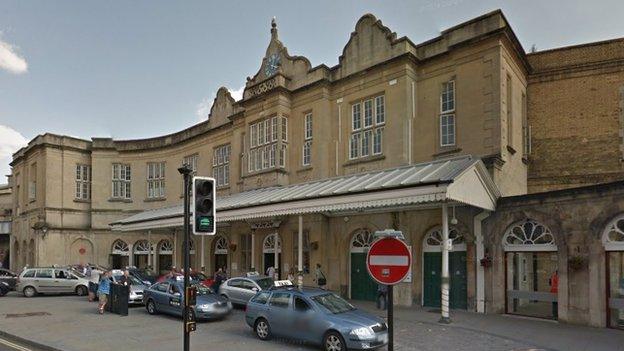Great Western electrification: Intercity line work 'deferred'
- Published
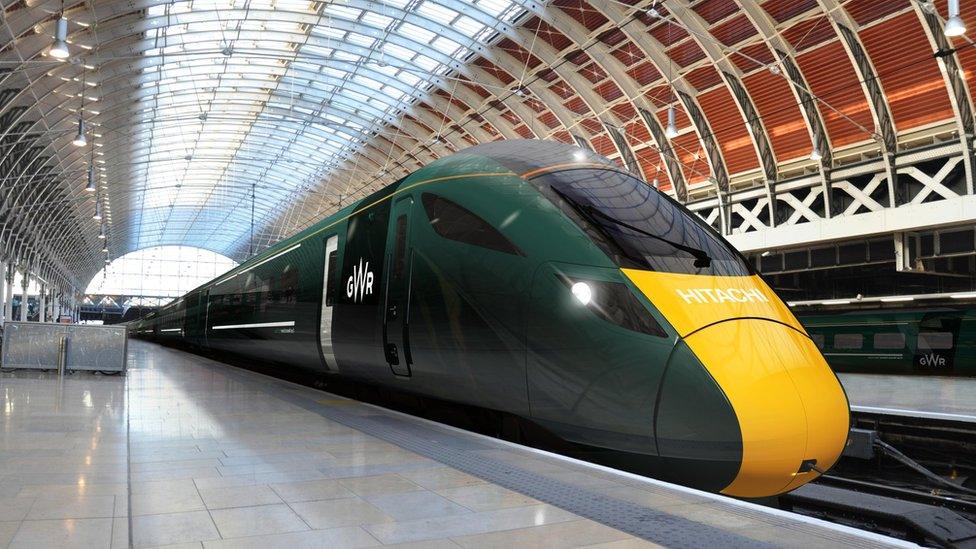
Lines affected include major routes to Bristol, Oxford, and Berkshire
Part of a £2.8bn project to electrify the Great Western route has been "deferred".
The plan was to fully electrify the route from Cardiff to London by 2018 and the scheme had already been delayed.
It was estimated to cost £874m in 2013, but spending spiralled out of control, causing some MPs to call it "staggering and unacceptable".
Lines affected include major routes to Bristol, Oxford, and Berkshire.
'Customers disappointed'
The main project to electrify the rail from Cardiff to London is still expected to be electrified by December 2018, the Department for Transport (DfT) said.
But rail minister Paul Maynard said deferring the electrification of some routes would free up between £146m and £165m, which would be used to "deliver additional benefits to passengers".

Which routes have been deferred?
Oxford to Didcot Parkway - which is one of the main lines connecting Oxford to London
Filton Bank - which links Bristol Parkway to Bristol Temple Meads
Thingley Junction - linking Bath Spa to Bristol Temple Meads
Thames Valley - branches in Henley and Windsor will also be affected

Mark Carne of Network Rail says rising costs are a 'significant disappointment'
Network Rail - which is implementing the project - and the Department for Transport, have been criticised by MPs for not being able to provide a schedule of when work on the line will be finished.
Network Rail's western route managing director Mark Langman said: "The Great Western main line is undergoing a huge rail investment programme to enable new and upgraded trains with more seats and faster, greener journeys.
"The changes announced today will deliver those benefits to the greatest number of passengers in the shortest possible time."
Mr Maynard said that a new intercity express service would run from Oxford, Bath and Bristol, where new trains can switch between diesel and electricity.
The scheme has been plagued with problems, including significant delays to the original timeframe.
BBC transport correspondent Richard Westcott said: "[Network Rail] pinned their hopes on a new, multi-million pound factory train that digs the holes, puts up overhead wire supports, fills the holes with concrete and hangs the wires.
"It was meant to put in 120 piles a week, but for a long time, I'm told, only managed about 30."
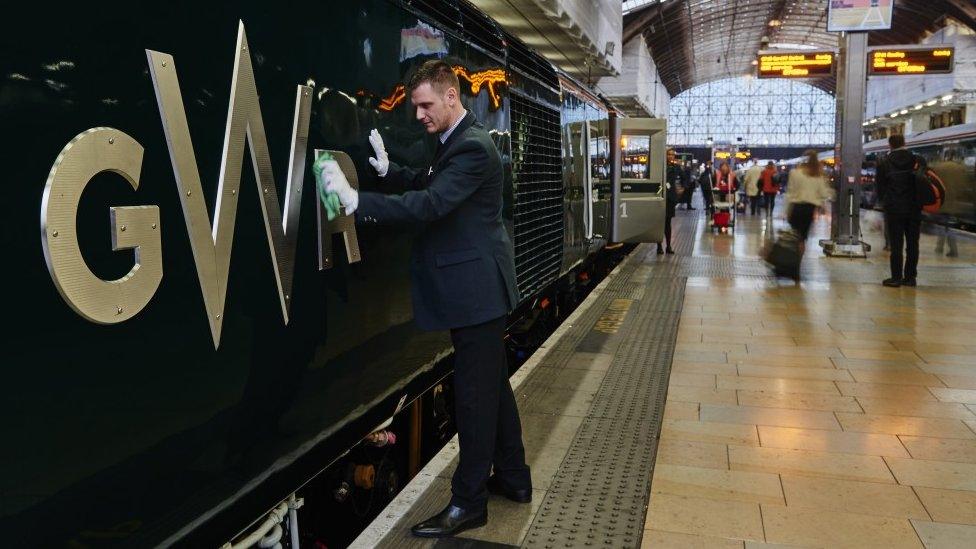
Great Western Railway said it was embarking on "the biggest fleet upgrade in a generation"
A spokesperson for Great Western Railway (GWR), which runs the rail franchise, said: "Customers will be disappointed at these further delays to parts of the electrification programme.
"However, we are determined our customers should not wait a day longer than absolutely necessary to see the benefits they're expecting from what will be the biggest fleet upgrade in a generation."

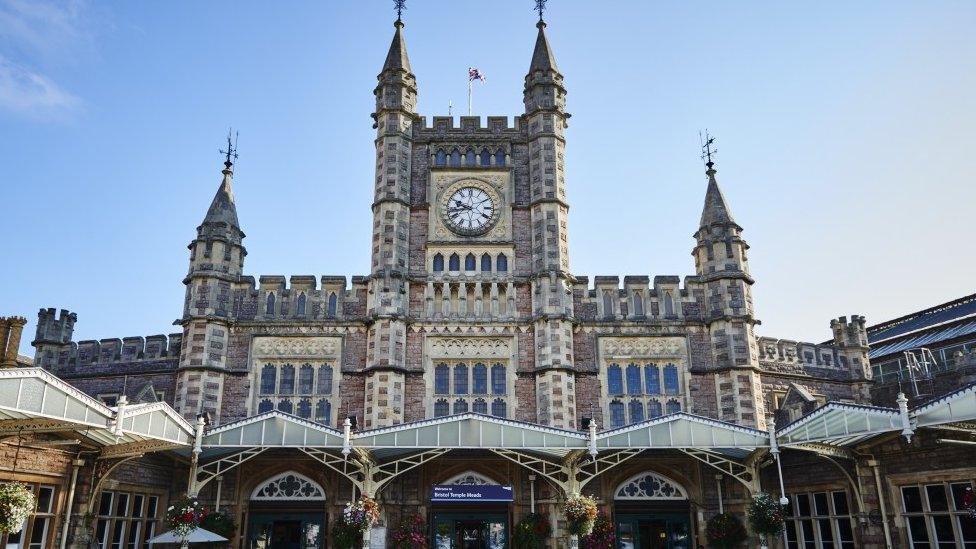
Bristol Temple Meads, above, and Oxford will both be served by a diesel and electric hybrid
Analysis: Paul Clifton, BBC South Transport Correspondent
The wires to power new trains were due to reach Oxford this year, with Bath and Bristol next year.
The whole £5.5bn project was due for completion in 2018. Network Rail won't give a new date.
But the aim now is by 2024. Yes, that is an overrun of truly spectacular proportions and Network Rail will get roasted for this. Some may question whether the work will ever happen. But in reality many passengers will barely notice.
They will still get new, more frequent intercity trains. But for much of the journey they will have to run on old fashioned diesel instead of quieter, faster, cleaner electric power.

Bristol West MP Thangham Debbonaire said: "I'm horrified the government is being so short-sighted.
"They've shown a complete lack of ambition with major infrastructure and that's the exact opposite of what we need to do.
"In an approaching post-Brexit world, what we need to do is make ourselves as competitive as possible and that means infrastructure and good transport."
- Published21 January 2016
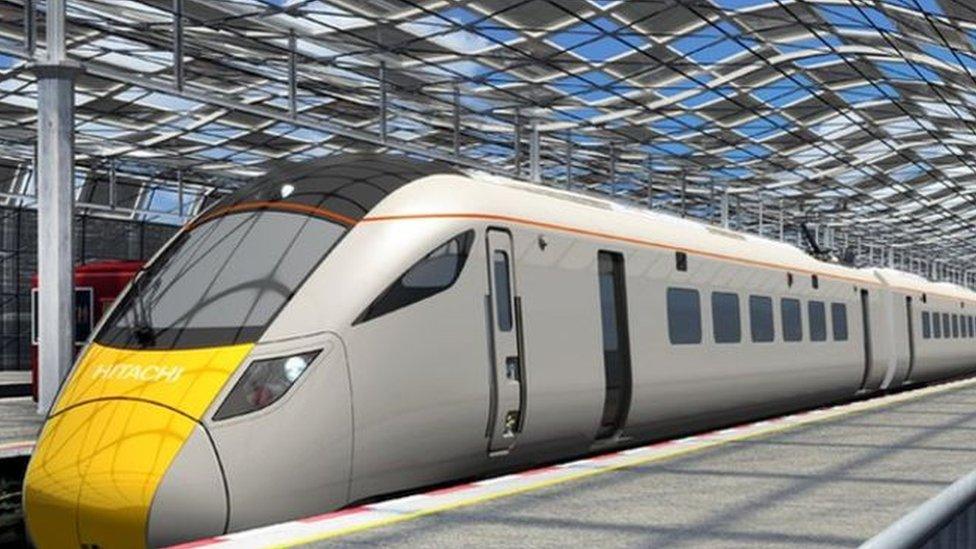
- Published25 November 2015

- Published20 November 2015

- Published21 October 2015

- Published23 July 2015
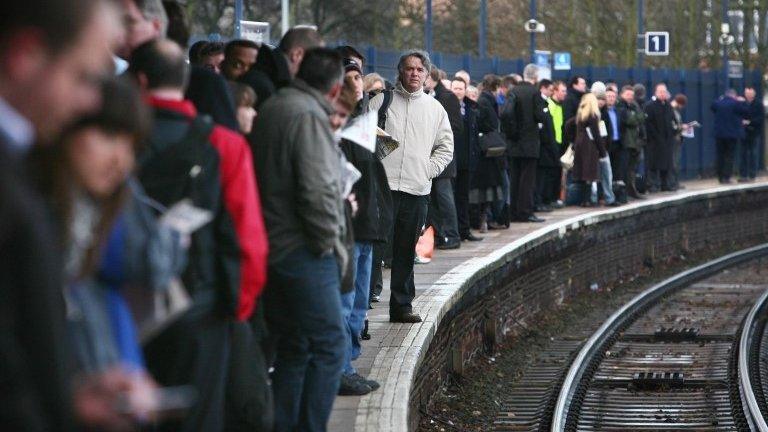
- Published18 July 2015
